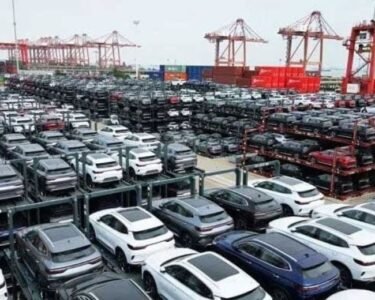In a surprising policy shift, the Government of Pakistan is moving ahead with a proposal to increase the sales tax on locally manufactured small cars with engine capacities up to 850cc. This comes after the initial rejection of the idea earlier last week. According to senior government officials, the revised tax hike will be included in the upcoming Finance Bill 2025.
Currently, sales tax on small cars in Pakistan ranges from 10% to 12.5%. The new plan proposes raising this rate to between 15% and 18%. The government argues that the move is necessary to meet revenue targets and manage rising fiscal pressures ahead of the FY 2025-26 budget.
Why Is the Sales Tax Being Increased?
The federal government is facing mounting fiscal challenges and is seeking additional revenue streams. Increasing taxes on automobiles, especially small cars, is seen as a quick way to boost tax collection. These vehicles are widely purchased by middle-income families due to their affordability and fuel efficiency.
Historically, small-engine vehicles have been subject to lower taxation to encourage domestic production and increase accessibility for average consumers. The proposed sales tax increase on 850cc cars could make these vehicles more expensive, potentially putting them out of reach for many buyers.
Impact on the Auto Industry and Consumers
Auto sector analysts warn that this tax hike could:
- Decrease demand for locally manufactured and assembled vehicles
- Negatively affect the already struggling automobile industry
- Discourage investment in local car production
- Increase reliance on used car imports
- Reduce purchasing power of lower and middle-income buyers
The Pakistani auto industry has already been battling inflation, rupee depreciation, and rising production costs. This tax measure could further burden manufacturers and end consumers alike.
Final Thoughts
The proposed increase in sales tax on small cars in Pakistan is a significant development that could reshape the local auto market. As the Finance Bill 2025 nears finalization, industry stakeholders and consumers await clarity on how the changes will be implemented and what exemptions, if any, may apply.
Disclaimer: This article is based on information from credible news reports and government sources as of June 2025. Final tax rates and policy changes will be confirmed through official announcements in the Finance Bill. Please consult the Ministry of Finance or FBR for the most accurate and updated details.






